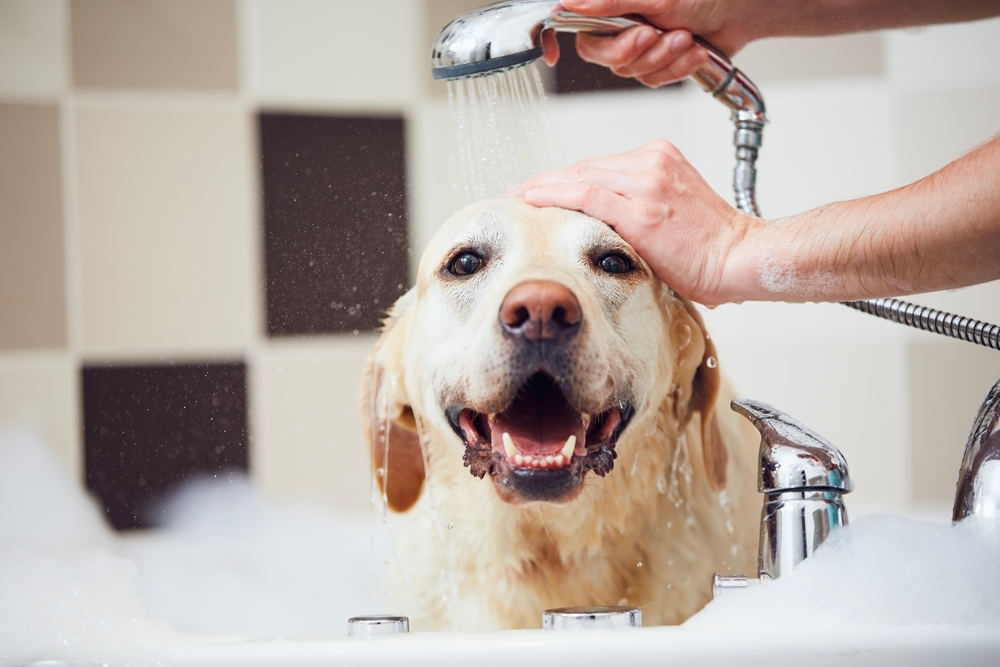Allergies are not only uncomfortable; they can also disrupt your pet’s health and cause an array of medical conditions. Specific allergies can affect your cat or dog, leading to chronic scratching, skin conditions, and gastrointestinal problems. However, with veterinary-guided management, your pet can lead a healthy, normal life despite their allergies. Our Peak Pet Urgent Care team explains pet allergies, their signs, and effective treatment options.
Why are some pets allergic?
Pets react adversely to substances for many reasons, but there isn’t one single cause to explain why some dogs and cats are more prone to allergies than others. However, the following factors can contribute:
- Genetics — Genetics plays a significant role in predisposing pets to allergies, and certain breeds are more susceptible than others. For example, golden retrievers, Labrador retrievers, and terriers are often diagnosed with allergic conditions such as atopic dermatitis. Similarly, certain cat breeds, including Siamese and Devon Rex, are prone to allergies.
- Environmental factors — Environmental allergens such as pollen, dust mites, mold, and certain plants can trigger allergic reactions in pets. Many pets spend significant time outdoors, where they are exposed to pollen and other airborne allergens. Indoor allergens such as dust mites and mold can also contribute to allergies, particularly in pets who spend a lot of time inside.
- Food allergies — Like people, pets can develop allergies to certain foods. Common food allergens include beef, chicken, dairy, wheat, soy, and corn. Food allergies can show up as skin or gastrointestinal problems. Identifying and eliminating the offending food from your pet’s diet is instrumental in managing their food allergy.
- Parasites — Parasitic infestations, such as those caused by fleas, ticks, and mites, can also trigger allergic reactions in your four-legged friend. Flea allergy dermatitis is the most common allergic skin condition in dogs and cats, characterized by intense itching and skin irritation. Regular parasite prevention and control measures are essential to reduce the risk of these allergic reactions.
- Immune system dysfunction — In some cases, pets may develop allergies because of an underlying immune system problem. An overactive immune response to harmless substances can result in allergic reactions. Factors such as stress, hormonal imbalances, and underlying health conditions can also contribute to pet immune system issues.
Managing pet allergies

Managing allergies in pets involves a combination of avoidance strategies, medical treatments, and environmental modifications, including:
- Identifying and avoiding triggers — The first step in managing allergies is to identify the specific allergens that trigger reactions. Our Peak Pet Urgent Care team will perform physical examinations and tests to determine the specific substances causing your pet’s adverse reactions. Once the problem allergens are identified, you should work to minimize your pet’s exposure to them. That could mean keeping your pet indoors during peak pollen season, using allergen-proof bedding, or avoiding certain foods.
- Prescribed medications — Various medications are available to manage allergies in pets. These may include antihistamines to ease itching and inflammation, corticosteroids to reduce allergic reactions, and immunotherapy (e.g., allergy shots) to desensitize your pet’s immune system to specific allergens.
- Skin care — Proper care is essential for pets with allergic skin conditions. Caring for your pet’s skin may involve regular bathing with hypoallergenic shampoos, moisturizing their skin to prevent dryness, and using topical medications to relieve itching and inflammation.
- Parasite control — If your four-legged friend is allergic to fleas or other parasites, they must be on year-round flea, tick, and heartworm preventives. In some cases, you may also need to enlist a professional extermination company to eliminate parasitic infestations in the home.
Allergies are a common reason for veterinary visits, but you can help your furry friend maintain an excellent quality of life with effective allergy management strategies. If your pet shows signs of severe allergies, do not hesitate to contact our Peak Pet Urgent Care team.







Leave A Comment